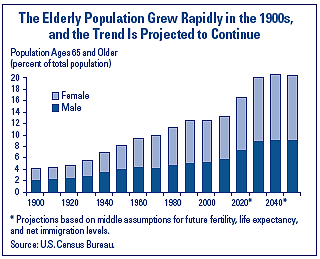Considering a Degree in Healthcare Administration?
The future of healthcare management has never looked more promising.
- Healthcare is one of the largest industries in the US, and ten of the twenty fastest growing occupations are in the health industry. In 2008, healthcare provided over 14 million jobs for wage and salary workers. (Bureau of Labor Statistics).
- The healthcare industry offers high earning potential. The average healthcare executive makes a salary between $100,000 to $250,000, based on experience and level of responsibility. This Kaiser chart of CEO pay packages demonstrates how much some hospital CEOs make (million dollar salaries).
- Healthcare management offers career flexibility. Healthcare managers can work across several different fields, including healthcare IT, insurance, management consulting, public health and financial institutions. The diverse skill set you earn in a MHA program prepares you for roles outside of traditional healthcare.
The Demand for Healthcare Services Will Continue to Grow
According to the US Department of Labor, the healthcare industry will generate over 3.2 million jobs between 2008 and 2018. In 2010 alone, the healthcare industry added an average of 22,000 jobs per month. There are several reasons that the healthcare industry, despite volatile market conditions, will continue to experience this type of growth over the next five to ten years.
1. Babyboomers Go Into Retirement
 Forbes dubbed 2011 as the hallmark year that the first wave of the baby boomers go into retirement, assuming the average age for retirement is 65. As babyboomers – the 76 million Americans born between 1945 and 1964 – enter retirement, the industry will experience strained resources and a surge in job openings, particularly in the senior management positions that are typically reserved for those with many years of experience. Studies show that baby boomers are also likely to “spend more” on healthcare needs, and as a generation demand more doctors visits, cosmetic visits, physical therapy and preventative care.
Forbes dubbed 2011 as the hallmark year that the first wave of the baby boomers go into retirement, assuming the average age for retirement is 65. As babyboomers – the 76 million Americans born between 1945 and 1964 – enter retirement, the industry will experience strained resources and a surge in job openings, particularly in the senior management positions that are typically reserved for those with many years of experience. Studies show that baby boomers are also likely to “spend more” on healthcare needs, and as a generation demand more doctors visits, cosmetic visits, physical therapy and preventative care.
2. Obamacare Prioritizes Healthcare Issues
Obamacare, the health reform act passed by President Obama, also contributes to the growth of the healthcare sector. Obamacare puts healthcare at the forefront of political issues, and in particular focuses on healthcare funding, reducing cost and increasing coverage. For MHA prospective students, this means a greater job outlook in the upcoming years. The Affordable Care Act, for example, allows more adults under the age of 26 to have coverage under their parents, which again elevates the need for healthcare services.
What a MHA can do for your healthcare management career
- Be competitive among your peers – According to the Bureau of Labor Statistics, a Master’s degree is now the standard credential for healthcare executives. Bachelor’s degrees suffice for entry level positions, but will only take you so far.
- Earn higher salaries – An executive with a Master’s degree reports an average of 25% higher income than a bachelor’s degree holder, since advanced degrees are prerequisites for many higher paying, senior level positions.
- Flexibility to earn degree while working – There are now over 50 CAHME accredited MHA programs in the United States, most of which offer part time and online curriculum. It’s never been easier for professionals to work and earn a master’s degree simultaneously.
With the promising job outlook, there’s never been a better time or reason to earn an degree in health care. To learn more, see our list of recommended programs below.